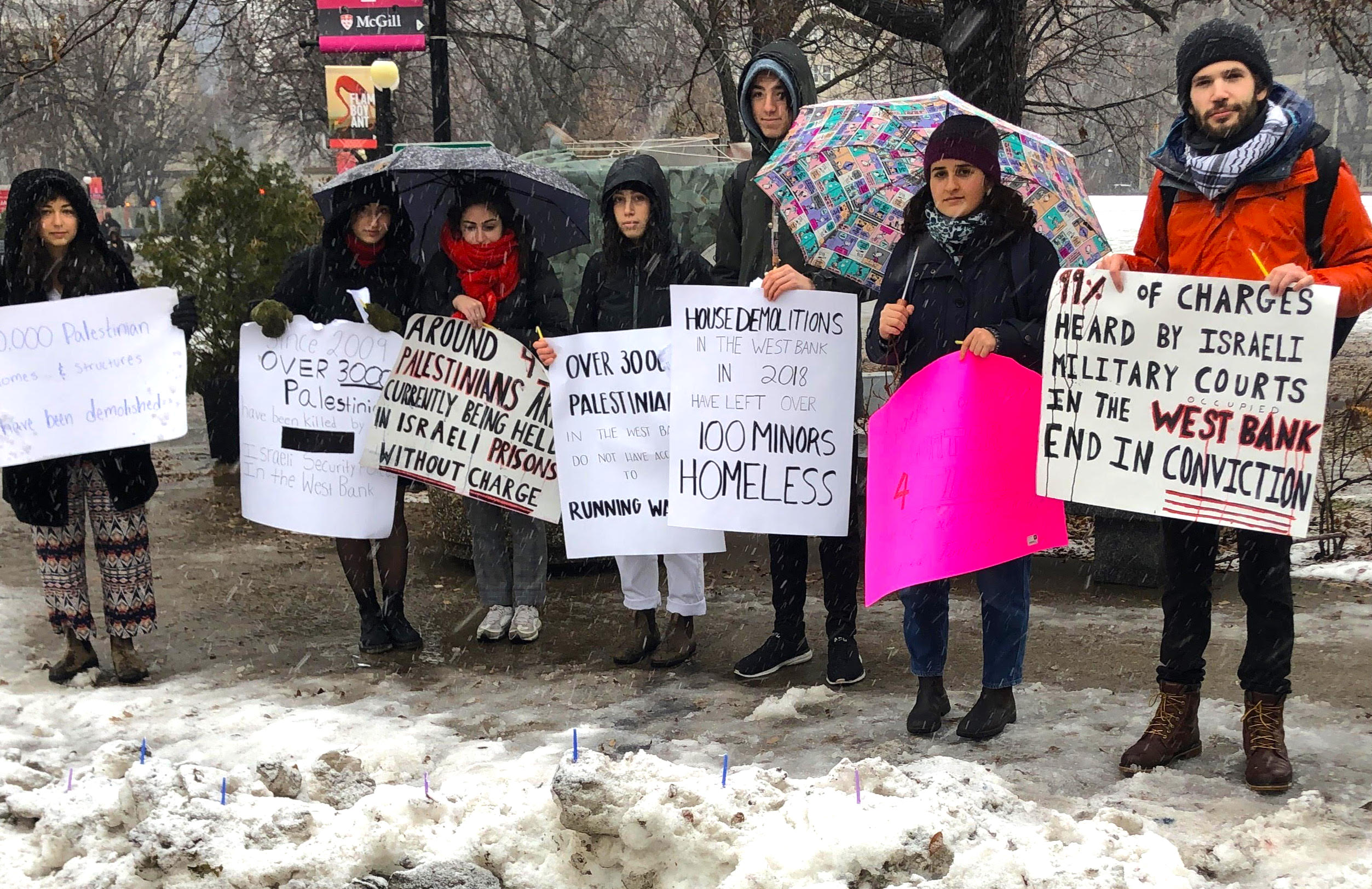On Dec. 3, I participated in a demonstration as part of IfNotNow Montreal (INN). The rally consisted of a small group of Jewish activists, most of them McGill students, who held posters displaying statistics about the Israeli occupation of the West Bank and Gaza. INN is a Jewish organization that advocates to end North American Jewish support for the occupation. I grew up in a community where I was encouraged to think critically about Israel and my relation to it as a well-assimilated North American Jew, and I have continued to do so upon entering university. However, when I first expressed an opinion on the Israeli-Palestinian conflict in public, I realized that my Jewish identity is far more intertwined with the existence of the State of Israel than I had previously believed.
Educational institutions have immense power over our political beliefs. From a young age, people absorb implicit values that influence their thought process for life. My education was mostly secular, aside from Jewish preschool, a socially-progressive Jewish summer camp, and rather benign Sunday morning classes at my synagogue. Somewhere along the road, I acquired an allegiance with Israel that I did not realize was intrinsic to my identity until I took a public stance against the occupation.
For some Jewish students, education promotes a specific viewpoint on the Israeli-Palestinian conflict. The legitimate message that Israel provides support for the Jewish people when they are targets of discrimination is coupled with an expectation that one must reciprocate this support to truly be Jewish. In private Jewish high schools especially, many educators politicize the pre-existing affinity for Israel among the student body. Peers link social belonging with unconditional support for Israel. This is the case to varying degrees among many Jewish institutions.
University upends Jewish students’ preconceived beliefs and exposes them to a complicated discourse rife with one-sided, divisive rhetoric. Groups like Chabad at McGill, StandWithUs, and Israel on Campus assert that university discourages Jewish pride and support for Israel. I have not been at McGill long enough to take a position on campus anti-Semitism. I have noticed, however, that most Jewish organizations at McGill are supportive of Israel, and quiet about the complexities of its political reality.
Organizations such as Jewish Voice for Peace, Independent Jewish Voices, and, more recently, IfNotNow, provide the primary outlets for Jewish students’ criticism of Israel on university campuses. However, many of these organizations require that students totally support the principles of the Boycott, Divest, and Sanction movement (BDS) movement. This absolutist position equates support for Israel on any level with tolerance for the occupation. Conflicted students should be open to challenging their perceptions about the occupation while also reflecting on their philosophy about the wider Israeli-Palestinian conflict. Every aspect of the issue is rooted in an identity that associates Israel with Jewish belonging and vice versa.
On campus, Jewish organizations and left-wing activist groups place progressive, Jewish students at a crossroads. Ingrained identity forged through childhood is confronted with idealist activism that demands a firmly-planted position on the Israeli-Palestinian conflict. There is no such thing as a non-controversial statement about Israel. With Jewish identity on the line, one feels a need to be confident, supported by facts, and willing to face criticism to make a statement about Israel. Ultimately, leftist Jewish students must strive to communicate their opinions despite the complexities of their situation.









Just because you’re Jewish doesn’t mean you have to pick a side on Israel and get involved in campus drama. You can just be Jewish and, you know, go to class.